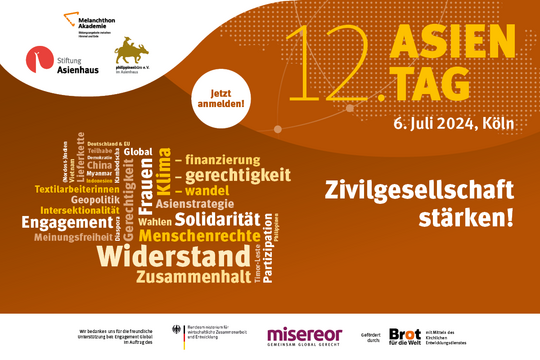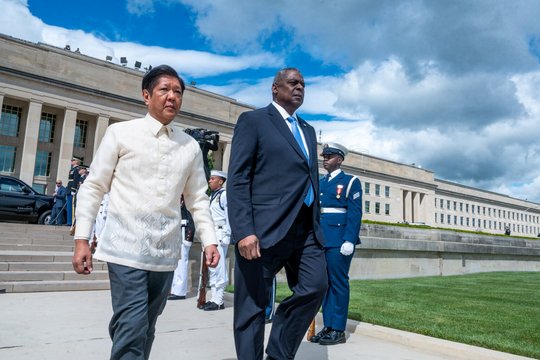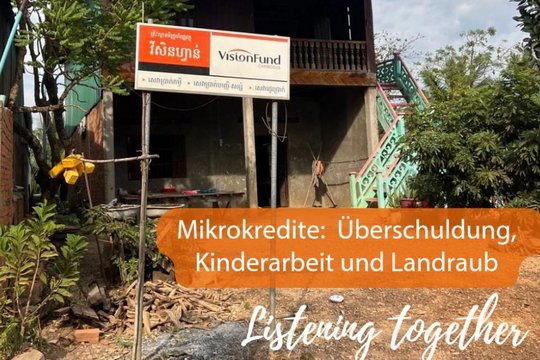The Cambodian People’s Party (CPP) solidified its political dominance in the 2023 election, securing a landslide victory. It captured 120 of the 125 seats in the parliament, leaving the remaining five seats to the royalist FUNCINPEC party. This overwhelming majority is a significant shift from the first UN-sponsored election in Cambodia in 1993, where FUNCINPEC won the most seats but failed to secure any in the previous two elections in 2013 and 2018. In 2018, after winning all 125 seats, the CPP was involved in trying to justify the one-party parliament as legitimate. Such justification is no longer needed this time, highlighting the party's unchallenged dominance. The CPP's overwhelming victory has consolidated its power. It could potentially lead to Cambodia's more centralized and less diverse political landscape, with implications such as reduced political opposition and potential challenges to democratic principles.
The 2023 election in Cambodia was not without its share of controversy. The National Election Committee (NEC) made a controversial decision to bar the only credible competitor, the Candle Light Party (CLP), from participating. The CLP, seen as the successor of the court-resolved CNRP, known for its progressive policies and strong stance on human rights, could have been a game-changer in the political landscape. The reason given for its exclusion was the party's failure to submit the required paperwork. However, the same party was allowed to participate in the commune election a year earlier in 2022. This decision has raised serious doubts about the fairness of the election and the NEC's impartiality.
 The 2023 election in Cambodia is a pivotal moment in the country's political history. After a 38-year reign, Asia's longest-serving PM, Hun Sen, stepped down. His party, the CPP, has once again secured overwhelming control of the parliament, a position it will likely maintain for at least another five years. The successful transition of premiership from the father to son, from former PM Hun Sen to his eldest son Hun Manet, could be seen as a ‘mission accomplished.’ This transfer of power within the CPP could have far-reaching implications for the future of Cambodian politics, potentially ensuring the party's control for the foreseeable future. With Hun Manet, a high-ranking military officer, and a CPP's central committee member expected to continue his father's policies, the party's dominance in Cambodian politics seems set to continue.
The 2023 election in Cambodia is a pivotal moment in the country's political history. After a 38-year reign, Asia's longest-serving PM, Hun Sen, stepped down. His party, the CPP, has once again secured overwhelming control of the parliament, a position it will likely maintain for at least another five years. The successful transition of premiership from the father to son, from former PM Hun Sen to his eldest son Hun Manet, could be seen as a ‘mission accomplished.’ This transfer of power within the CPP could have far-reaching implications for the future of Cambodian politics, potentially ensuring the party's control for the foreseeable future. With Hun Manet, a high-ranking military officer, and a CPP's central committee member expected to continue his father's policies, the party's dominance in Cambodian politics seems set to continue.
An end that was never near
Was he stepping down as the PM put an end to his power control?
The then-PM Hun Sen had made it clear after the preliminary result of July 2023’s election of his party’s landslide victory that he may have stepped down from a position as the PM. Still, he was not yet ready to retire from politics, particularly his grip on power. Alongside declaring his steeping-down, he declared that he would become the head of the Supreme Privy Council of the King right after his son, the incumbent prime minister, was appointed PM. Moreover, he declared that he would become the President of the Senate, the highest legislative body, the position that makes him the acting Head of State in the absence of His Majesty the King from the country. As the current president of the CPP, he has the power to manage his party members and to appoint or remove people from positions at will. These factors realistically mean that he will still be around for years.
Not only was the PM stepping down as the PM, but his old foes were among those who had to be relieved from their positions, including the Minister of Interior and the Minister of Defense. The former PM, Minister of Interior, and Minister of Defense had their sons acquire their father’s positions, respectively. Among other ministries, sons, daughters, and relatives have been given positions in similar fashion across the cabinet.
Unlike their parents, who survived the genocidal Khmer Rouge regime, received little formal education, and rose to the ranks during wartime, the new batch boasted of higher education from developed countries, including Australia, Europe, and the US, to name a few. For example, the current PM, Hun Manet, was a military graduate from West Point in the US and a Ph.D. in Economics from the UK, among others, and most of them boasted fluency in the English language.
Media fanfare followed, echoing those credentials in an effort to build credibility and gain confidence and hope among the public.
The public dialogue was divided into hope and despair. The hope was for the change of the country’s leader, who was replaced by young crops and Western education. The despair was the disappointment the country had become the power-sharing among the family members of close ties, leaving people to lament the lack of opportunities for sons and daughters of ordinary citizens to rise the ranks without having to build a strong connection.
Hope for democracy, human rights, and the rule of law?
 The public also had divided opinions about the country’s path to restoring democracy, human rights, and the rule of law. Some see the successful transfer of power from Hun Sen to Hun Manet as a mission accomplished and a light at the end of the tunnel because the practice of authoritarian regimes was an effort to secure the successful transition of power, and the young crop of leaders were mostly Western-educated. Now that the ‘mission is accomplished,’ they will loosen their grip and let the younger crop implement the Western-taught theories of democracy, human rights, and the rule of law.
The public also had divided opinions about the country’s path to restoring democracy, human rights, and the rule of law. Some see the successful transfer of power from Hun Sen to Hun Manet as a mission accomplished and a light at the end of the tunnel because the practice of authoritarian regimes was an effort to secure the successful transition of power, and the young crop of leaders were mostly Western-educated. Now that the ‘mission is accomplished,’ they will loosen their grip and let the younger crop implement the Western-taught theories of democracy, human rights, and the rule of law.
Some others do not believe that the new crops of young leaders would make a reverse and turn the country into a genuine democracy any time soon, as the positions were partly attributed to the lack of full opposition participation, the shrinking civil and political space, including the elimination of media outlets considered against the government, and the pressures on civil society organizations (CSO). When questions were raised about the practice, the response was that it was the rightful application of the law.
The question goes on to: if the transfer of power from father to son was a consequence of undermining democratic principles and had guaranteed success, how did this move back to a full-fledged democratic path when the opposition had acquired almost half of the parliamentary seats in 2013?
During the last two general elections in 2018 and 2023, the credible opposition was completely out of competition, and the opposition automatically won no seats. The election result in 2013 saw the opposition party, the Cambodian National Rescue Party (CNRP), win 55 seats while CPP took 68, against the backdrop of one of the last controversies after the election, where protests and negotiation had taken months before the agreement was reached by the two parties to take office in the parliament.
My wish is my command!
The wish to transfer power from the father to the son was granted. The wish to become the Head of the Supreme Privy Council to the King was granted. The final wish to become the President of the Senate had to wait until the Senate election in February 2024. In an indirect election, the Senate is voted on by the current 125 members of parliament and the more than 11,000 commune/Sangkat councilors elected in 2022. If the elected commune/Sangkat councilors voted for their parties, which is more likely than not the case, Hun Sen could have predicted his party, CPP, would win another landslide victory, which would have guaranteed his status as the President of the Senate. The opposition could have won less than 10 out of the 58 contested seats if their party’s elected councilors agreed to the calculated plans. It turns out, however, that the opposition received only three seats. Cambodia’s Senate consists of 62 seats. In addition to the 58 contested seats, the Parliament appointed another two, and His Majesty King appointed the other two.
 Though no risk surfaced in the build-up to the Senate election that could have jeopardized this final wish, the election was not without controversy. The hope of a more open space for competition was not as expected with the young crops in the executive branch, as Hun Sen would not leave anything to chance. His wish should not be anyone else’s command. His wish must be his command. And he made it again. The result showed his party had won more than enough to vote for him to be the President of the Senate, officially a reality on 3 April 2024.
Though no risk surfaced in the build-up to the Senate election that could have jeopardized this final wish, the election was not without controversy. The hope of a more open space for competition was not as expected with the young crops in the executive branch, as Hun Sen would not leave anything to chance. His wish should not be anyone else’s command. His wish must be his command. And he made it again. The result showed his party had won more than enough to vote for him to be the President of the Senate, officially a reality on 3 April 2024.
What direction will it take?
The serious question is whether the incumbent PM and his young cabinet members will relish the challenge of promoting genuine democracy, human rights, and the rule of law, as stipulated in the Constitution and their international human rights obligation, and have the right mindset to steer the wheel. Or will this new crop continue to preserve the parents' legacy and maintain the grip on power at all costs?
Cambodia now has a son leading the executive branch as the Prime Minister and his father leading the top legislative branch as the President of the Senate. How the check-and-balance principles are implemented is now anyone’s guess.
About the Author: Sok Leang is a Cambodian researcher on social issues, human rights, gender equality, and post-conflict transitional justice, and a part-time lecturer of Sociology and Critical Thinking.
Read this article in German "Personalwechsel ohne Politikwechsel?" in the issue 1/2024 "Wahlen, Demokratie und Menschenrechte in Südostasien" of our online magazine südostasien.









